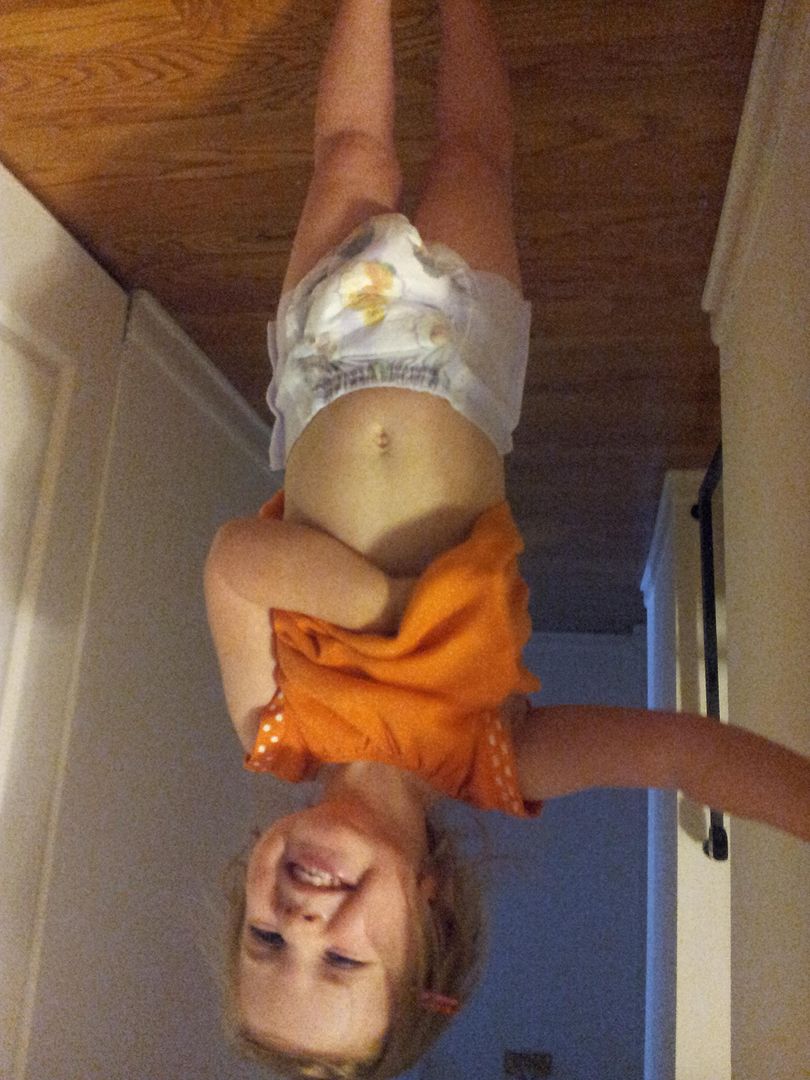
Of course, the real scenario wasn’t nearly as neat and tidy. Although daytime training was quick and easy, nighttime dryness proved elusive. Months passed, and she pottied like a pro during the day but clung fiercely to diapers at night. After two long years (and many unsuccessful attempts) she finally started waking up dry, and we packed away the diapers for good.
In retrospect, it was no big deal: it’s highly common for a 4-year-old to wear a diaper to bed. Eventually, most kids achieve nighttime dryness without intervention. But I could have avoided some anxiety if I’d known all of that from the start.
Our situation was far from unusual; experts say that many parents need to adjust their expectations about nighttime dryness. According to Tai Lockspeiser, M.D., assistant professor of pediatrics, nighttime bladder control is a maturational process that can lag behind daytime bladder control by months or years. Twenty percent of kids still have nighttime accidents at 5 years of age, and doctors don’t define bedwetting until children are 6 years old.
So it’s completely normal, even expected, for kids to take their time with nighttime potty training. But the delay leaves many parents like me stuck in a waiting game, wondering when daytime potty learning will carry over into nighttime dryness. While parents can’t speed up the developmental process, they can help encourage dry nights with these simple steps.
Age Matters
Start with realistic expectations. While 88 percent of kids develop nighttime bladder control by age 6, the timeline varies widely. Boys typically train more slowly than girls, says Lockspeiser. Kids who are exceptionally deep sleepers and those with developmental delays may have more difficulty with wetting as well, she says.
Potty Practice
The best way to encourage nighttime dryness is to practice good daytime habits, notes Steve Hodges, M.D., a pediatric urologist. Children should use the toilet as soon as they feel the urge—holding can strain the bladder and worsen nighttime wetting, he says. And using the toilet before bedtime is a must.
Encourage Digestive Health
“Constipation is probably the most underappreciated cause of bedwetting,” says Hodges. “It plays a role in 30 percent of the cases I see.”
A full GI tract puts pressure on the bladder, making nighttime accidents more likely.
Cut Caffeine
Limit fluids two hours before bedtime, particularly caffeine-containing beverages. “Caffeine is a diuretic, so it promotes urination. Drinking it before bedtime will make it harder for kids to stay dry at night,” says Lockspeiser.
Ensure Nighttime Toilet Access
Ensure that kids have access to the toilet at night. Nightlights in hallways and bathrooms can help kids find their way easily. If the trek to the toilet is too far or involves stairs that tots can’t navigate on their own, parents can place one of the small portable toilets commonly used for potty-training in their room at night.
Skills vs. Pills
Doctors may recommend treatment options for persistent wetting that doesn’t resolve by age six. Bedwetting alarms, called enuresis alarms, help children learn to stay dry by waking them at the first sign of wetness. Medicines like desmopressin can help prevent accidents by slowing nighttime urine production.
While pharmaceutical treatment can be useful for special situations—sleepovers or vacations, for example—it doesn’t help to correct a bedwetting habit, says Robert W. Collins, Ph.D., a psychologist who specializes in childhood toileting problems. He prefers alarms over pills: “Medications don’t enhance learning to give kids the skills to stay dry.”
Health Matters
See a doctor if a child who has been potty-trained and dry at night for months begins wetting at night. A urinary tract infection is a common culprit for sudden wetting. “We also consider stressors or social challenges, like a move, a new school or divorce,” says Lockspeiser.
Staying Clean: Encopresis
What about kids who soil at night? Encopresis is the term for soiling in inappropriate places after age 4. While nighttime soiling in preschoolers and school-age children is much rarer than bedwetting, it’s also more emotionally distressing for the family and socially isolating for the child, says Collins. His website, www.soilingsolutions.com, is a resource for parents dealing with encopresis. First, take a look at their daytime bowel habits.
“Chances are, a child who is soiling at night is holding during the day,” says Collins.
Dietary changes, increased fluid intake, and changes to the child’s daily routine can help encourage regular elimination during the day.
If improved daytime habits don’t resolve the problem, families can progress to more advanced encopresis treatment, which may include supplements, suppositories, and behavioral therapy to treat severe constipation and holding habits. The good news: these treatments have a high success rate and kids benefit from increased confidence and self-esteem as the condition improves.
The Right Attitude
Parents’ attitudes are highly important as kids develop nighttime control.
“Treat it as a problem-solving exercise—a family science experiment,” says Collins. Above all, make sure that children know that nighttime wetting or soiling is not their fault. Maintain a relaxed, supportive attitude, and you’ll pave the way for a future filled with clean, dry nights. or you can get efiesien to buy potty training by noon this good methods you can practice fast. click here for see



No comments:
Post a Comment